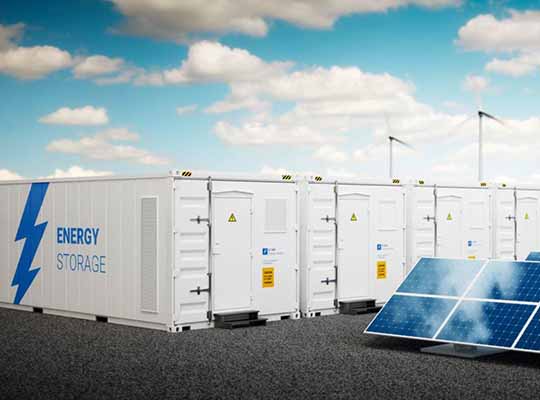Boulder, Colo. — UL, a global safety science leader and developer of standard-setting renewable energy modeling software, announced the release of HOMER® Front, a licensable web-based software platform for designing and optimizing complex utility-scale energy storage systems — whether standalone or in combination with solar or wind energy.
Equipped with robust battery dispatch modeling and an intuitive user interface, HOMER Front performs technical and economic analysis that helps developers maximize the revenue of their energy storage or hybrid project. The software allows users to test and analyze wind, solar and battery project size, architecture and technology rapidly. In conjunction, HOMER Front users can optimize battery augmentation strategies for participating in energy and capacity markets and meeting off-take agreement requirements.
HOMER Front meets a critical need as utility-scale renewable project developers worldwide face more competition and a growing demand for supplying clean energy reliably. By adding storage to their projects, developers can offer dispatchable power, increase revenue, strengthen system reliability and support decarbonization goals.
“By providing accurate, detailed results for different system configurations, HOMER Front allows developers and financiers to evaluate the system’s performance and make critical project decisions with confidence,” said Colin Tareila, engineering manager of Renewables in UL’s Asset and Sustainability Performance group. “We’re extremely pleased with the significant advantages we’ve seen HOMER Front provide through our work on UL’s advisory projects and feedback from early users of the software. The capabilities will help advance the deployment of energy storage projects worldwide.”
Important value streams for U.S. and global markets that rely on energy wholesale, capacity markets and power purchase agreements — including California Independent System Operator (CAISO) and Electric Reliability Council of Texas (ERCOT) — are modeled in the software.
HOMER Front is built on the HOMER software platform, the longstanding standard for modeling, optimizing and designing least-cost microgrids and behind-the-meter distributed energy resources. As HOMER software’s first web-based application, HOMER Front eliminates the need for download and installation — enabling use on any operating system by global teams and increasing computational power.
With HOMER Front, energy developers in the U.S., Canada, Europe, Asia, Oceania and Latin America will gain deep economic insight into utility-scale systems, including:
- Optimal sizing of energy storage in utility-scale systems
- Battery capacity degradation and augmentation strategies to maximize revenue and minimize expenses
- Revenue stack analysis from:
- Wholesale energy markets with hourly and sub-hourly pricing
- Capacity markets such as resource adequacy in the CAISO market
- Power purchase agreements, including shaping or time of delivery capacity injection requirements
- Robust sensitivity analysis to screen projects for economic viability and de-risk internal rate of return
Originally developed at the National Renewable Energy Laboratory, HOMER software has performed more than 250,000 project calculations in over 190 countries. Products include HOMER Pro for standalone microgrids and DERs and HOMER Grid, which helps grid-connected commercial and industrial customers design hybrid renewable energy systems that save on electricity bills, reduce peak loads, and lower carbon footprints. Learn more about HOMER software.













